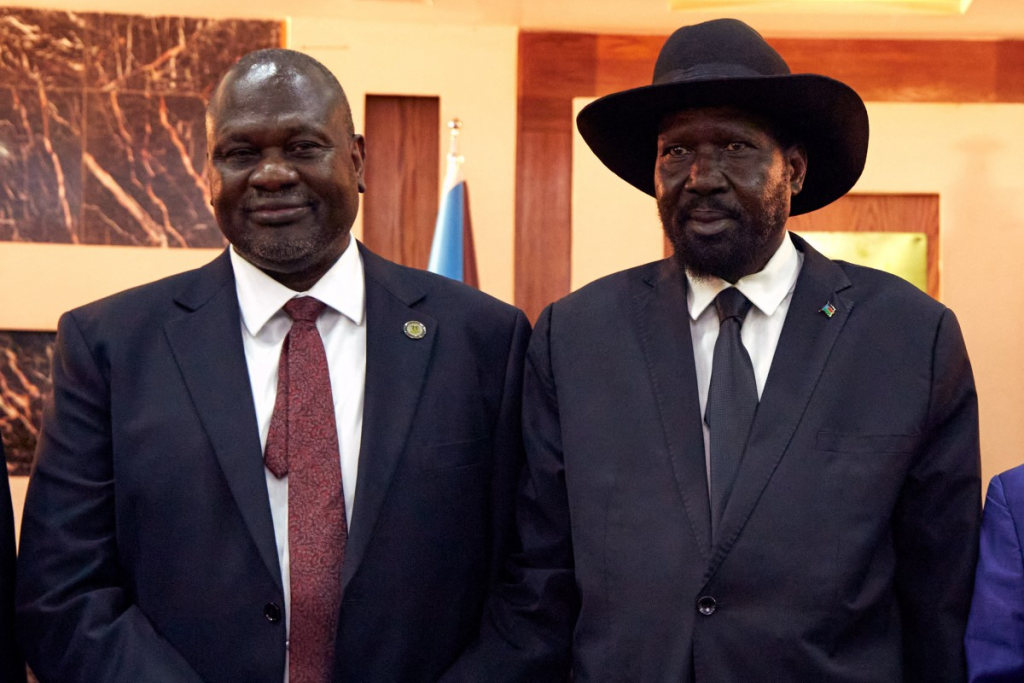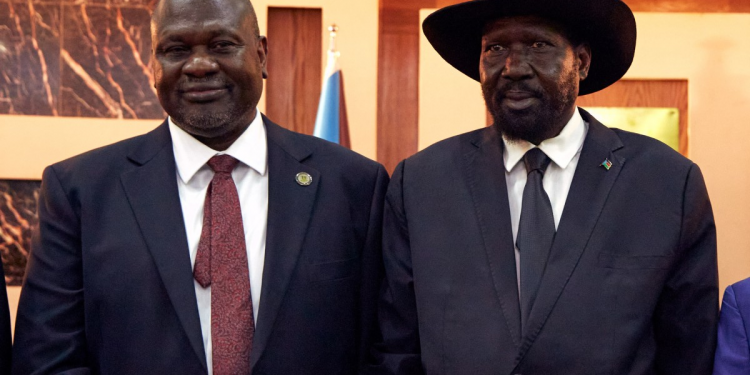South Sudan’s opposition has declared the 2018 peace agreement void following the overnight arrest of First Vice President Riek Machar, a long-time rival of President Salva Kiir. The development has raised fears of renewed conflict in the war-torn nation.
According to a statement from Machar’s party, heavily armed security forces stormed his residence in Juba late Wednesday, arresting him in a dramatic escalation of political tensions. The power-sharing deal between Kiir and Machar has been unraveling for weeks, threatening to plunge the country back into civil war, which previously claimed around 400,000 lives between 2013 and 2018.

“With the arrest and detention of Dr. Riek Machar Teny, the R-ARCSS 2018 peace agreement has been nullified,” said Oyet Nathaniel Pierino, deputy chairman of Machar’s party. “The prospect of peace and stability in South Sudan is now in serious jeopardy.”
The United Nations Mission in South Sudan (UNMISS) warned that the country is on the verge of widespread conflict.
“The nation’s leaders stand on the brink of relapsing into full-scale war,” said UNMISS head Nicholas Haysom, adding that a breakdown of the peace deal would have devastating consequences, not just for South Sudan but for the entire region.
While Juba remained calm on Thursday morning, an AFP journalist reported a strong military presence around Machar’s residence, located near President Kiir’s home, with a tank stationed nearby.
Civil society leader Edmund Yakani said many South Sudanese are deeply concerned about the situation.
“The public is in panic,” he told AFP. “There is a high risk of a deadly conflict driven by revenge.”
Since February, more than 20 of Machar’s allies—both political and military—have been detained, many without communication. His party also claims that government forces have attacked three of its military bases near Juba since Monday. These bases were designated training centers for opposition troops awaiting integration into a unified national army, a key provision of the 2018 peace deal.
While the government-aligned South Sudan People’s Defence Forces (SSPDF) have not confirmed these attacks, they accused Machar’s forces of carrying out provocative maneuvers earlier in the week.

President Kiir, 73, has been accused of attempting to sideline Machar ahead of a potential succession plan, following months of political reshuffles. Despite reaffirming his commitment to peace during a meeting with church leaders, recent weeks have seen intensifying clashes, particularly in Nasir County, where government troops have battled the White Army, a militia linked to Machar.
“The violence that started in March in Nasir seems to be spreading across multiple states,” said Daniel Akech, South Sudan senior analyst at the International Crisis Group. He warned that Kiir and Machar’s failure to engage in dialogue—despite pressure from international mediators—was a “red warning.”
“If a wider conflict erupts, it will be decentralized and extremely difficult to control,” Akech cautioned.
As tensions rise, Norway and Germany have shut down their embassies in Juba, while the British and U.S. embassies have scaled back operations, urging their citizens to leave the country.









